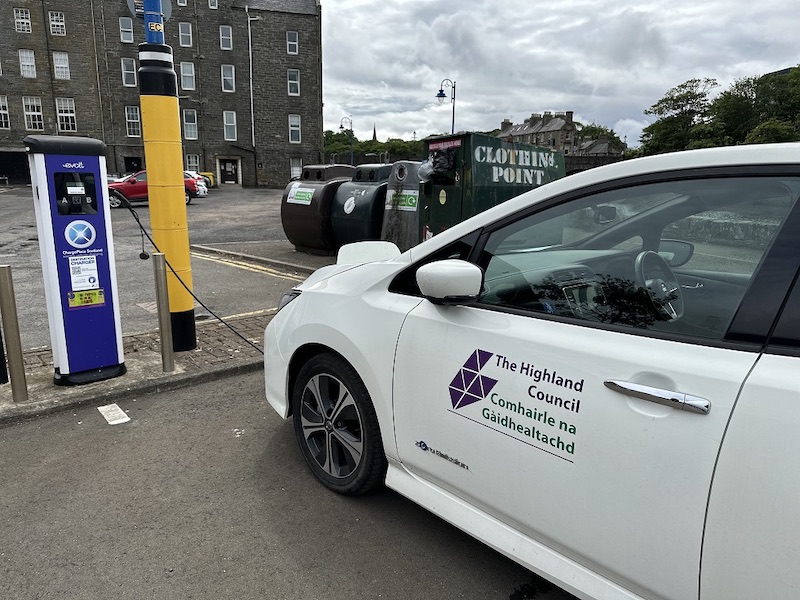The tireless work of Highland Council’s Electric Vehicle (EV) Team has enabled the local authority to take huge strides toward the decarbonisation of its fleet and help tackle the ecological and climate emergency.
The EV team has successfully promoted behavioural change towards decarbonising transportation and the significant developments that work has delivered has accelerated the transition to low carbon transport for the Council and its communities.
Part of that work has seen charge points available within a 30-mile radius across the region.
The team’s work was recognised with a place on the shortlist in the “Sustainable Highland Environment and Global Centre for Renewable Energy” category at this year’s Highland Council Staff Recognition Awards.
Economy and Infrastructure Committee Chair, Cllr Ken Gowans said:
“The progressive and proactive work by the EV team has ensured the Council is well positioned to meet its decarbonisation responsibilities.
“I am delighted their work was recognised by inclusion in the short list at the recent Staff Recognition Awards.
“The development of the network has further encouraged visitors to travel to the region, providing confidence to those who regularly travel long distances, whilst also providing opportunities for the local economy to benefit.”
A sustainable tariff structure is in place which helps ensure the long-term development of the network and supports a Just Transition.
The team has been instrumental in securing £3million of external funding which has supported opportunities to promote behavioural change across the region. Over the last five years the estate has grown from 19 to 92 charging points.
The EV Team consists of Neil Osborne, Rachael Anderson, Roslyn Clarke, Jackie Sayer, Robin Pope and Caroline Campbell.
The EV network is managed by Charge Place Scotland, a 24-hour helpline is available, and a maintenance contract is in place for all infrastructure.
The Team is now looking ahead and aiming to develop the network further through an innovative collaborative approach which looks to leverage commercial investment to support this expansion.
A tariff introduction in 2021 (and increase in 2023) enabled the Council to begin to develop a budget that would ensure the future of the EV infrastructure by creating a sustainable network and replacing aging units.
Session data shows that Q1 of 2023 had 2,701 more sessions than the same period in 2022.
The overall CO2 saving for 2022 is 506.8T, with a total of 44,576 sessions taking place.
This has increased year-on-year and portrays the demand for EV infrastructure, highlighting the pace at which the network is developing, and the management required by the EV team.
The Pathfinder project, a collaboration with Aberdeen City Council and Aberdeenshire Council, aims to develop a sustainable EV network with generates an income stream for the Council and ensures a Just Transition for the region.
The EV Management Team is always keen to engage in open dialogue with EV users and the wider community.
This is shown through continuous communication in response to site suggestions and feedback on the network as well as specific EVCs.
In the last financial year, Culbokie and Dornoch have been supported by the EV team for the installation of EVCs to benefit their communities.



